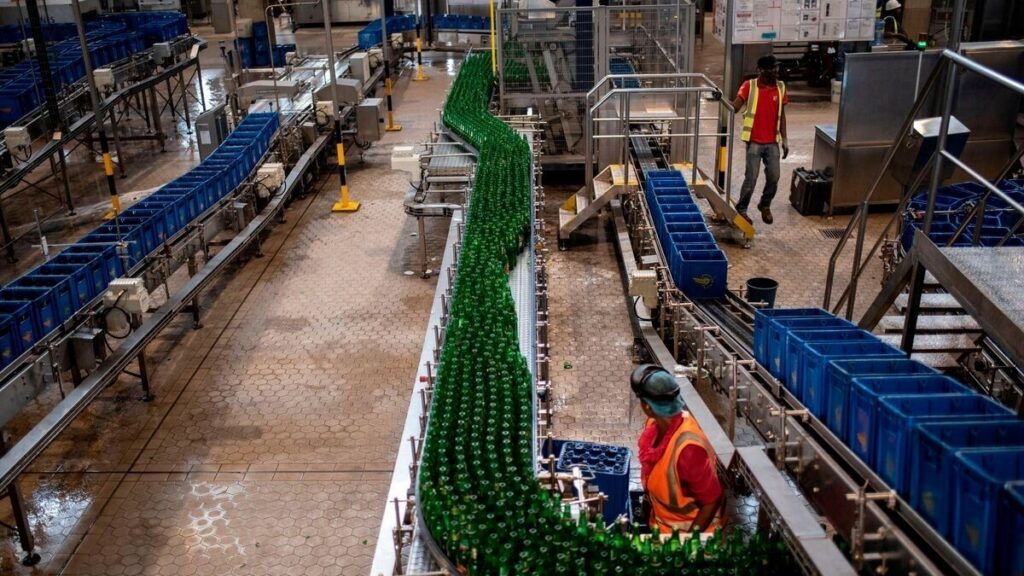The Manufacturing Association of Nigeria (MAN) has raised alarm bells concerning the state of the manufacturing industry in the country.
The Manufacturing Association of Nigeria (MAN) is a non-profit organization established in 1971 to advocate for manufacturers’ interests and improve Nigeria’s manufacturing sector. MAN engages in advocacy, capacity building, information dissemination, networking, and policy engagement to support manufacturers, enhance competitiveness, and contribute to Nigeria’s economic development.
MAN serves as a platform for manufacturers to collaborate, address common challenges, and promote industry growth through partnerships and advocacy efforts with government agencies, policymakers, and other stakeholders.
Their recent report highlights a distressing trend, revealing that a staggering 767 manufacturing companies closed their doors in 2023, while an additional 335 faced significant distress.This concerning development is attributed to a myriad of economic challenges plaguing the sector, including exchange rate volatility, rising inflation, and a deteriorating investment climate. These adversities have collectively taken a toll on the performance and sustainability of Nigeria’s manufacturing sector.
One major point of contention for MAN is the recent introduction of the Expatriate Employment Levy (EEL) by the Federal Government. The association argues that this levy contradicts the objectives set forth in President Bola Tinubu’s Renewed Hope Agenda and the core principles of his Fiscal Policy and Tax Reform initiative.
The imposition of the EEL, which significantly raises fees for expatriates working in Nigeria, is seen as a counterproductive measure that could exacerbate the already challenging conditions for manufacturers in the country.
The new levy charges $10,000 for staff and $15,000 for directors, representing a drastic increase from the previous $2,000 fee for the Combined Expatriate Residence Permit and Alien Card. MAN believes that such a steep rise in fees could raise the cost of doing business in Nigeria, especially for manufacturers already grappling with numerous challenges.
The manufacturing sector has experienced a decline in capacity utilization to 56%, compounded by rising interest rates and a shortage of foreign exchange necessary for importing essential raw materials and machinery. Additionally, the sector grapples with an inventory of unsold finished products valued at N350 billion, coupled with a real growth drop to 2.4%.

MAN has expressed concerns regarding the potential conflict between the EEL and Nigeria’s international trade agreements, particularly the African Continental Free Trade Area agreement. This agreement aims to enhance the free movement of skilled labour across the continent, which could be hindered by the introduction of the levy.
In light of these concerns, MAN has called on President Tinubu to reconsider the implementation of the Expatriate Employment Levy (EEL), warning of its negative consequences on the manufacturing sector and the broader economy. The association urges the discontinuation of the levy to prevent further distress within the sector and align with the broader goals of economic growth and development in Nigeria.

The imposition of the EEL has triggered considerable backlash from industry stakeholders, including the Lagos Chamber of Commerce and Industry and the Centre for the Promotion of Private Enterprise. These organizations have criticized the levy, expressing concerns about its potential impact on foreign direct investment, diaspora remittances, and regional economic integration efforts.
MAN’s stance underscores the urgent need for policy measures that support the growth and sustainability of the manufacturing sector amidst the prevailing economic challenges. It is crucial for the government to address these concerns and create an environment conducive to investment, innovation, and competitiveness in Nigeria’s manufacturing industry.
Sources
- https://nairametrics.com/2024/03/06/767-manufacturing-companies-shut-down-in-nigeria-n350-billion-goods-unsold-in-2023/
- https://punchng.com/767-manufacturers-shut-down-in-2023-man/#:~:text=The%20Manufacturers%20Association%20of%20Nigeria,have%20worsened%20the%20investment%20climate.
- https://twitter.com/Nairametrics/status/1765390731579937049https://tribuneonlineng.com/767-manufacturing-companies-shut-down-in-2023-man/




